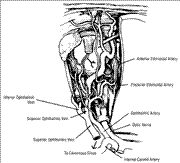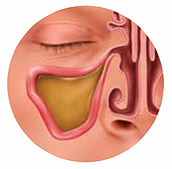How Do Doctors Drain Sinuses?

There are many different ways to drain your sinuses, including antibiotics, nasal sprays, and even surgical procedures. If you are experiencing severe symptoms and discomfort after a cold or flu, it may be time for you to consider sinus drainage.
Sinus drainage is important because it helps the body’s immune system fight infections. The bacteria that cause infection can also build up in the sinuses, which can lead to swelling and difficulty breathing. Drainage can help by flushing mucus that collects in your sinuses. The process can be slow and painful, and many people choose to wait until their sinuses are better understood before trying to drain.
One of the ways doctors often drain sinuses is with irrigation. This involves inserting a tube into the nasal drainage bag and draining through the tube. In addition, the drain tube is usually covered with plastic to prevent the drainage fluid from dripping. This type of drainage can also help with a variety of sinus problems, including swollen sinuses or tonsillitis.
Drainage through a nasal irrigation device usually takes two or three days. You may also need to stay in the hospital to recover for several days while you recover from the procedure. Since this procedure takes several days to take effect, many patients may wait until the swelling subsides.
Doctors can also use a nasal spray to drain the sinuses. Read more about treatment on the website https://bupa.co.th/. It can be used when one or more of the underlying causes of sinusitis or other nasal congestion do not respond to conventional medicine. Many patients prefer this method over antibiotics and nasal sprays because it works more easily on their sinus membranes.
Drainage with irrigation or nasal spray can also be helpful if you have acute sinusitis or a sinus infection. These infections can be very painful and breathing can be difficult. With the help of irrigation or spray, fluid flows through the nose into a drainage bag, and then drainage fluid returns from the nasal cavity.
Drainage with a nasal irrigation device is a relatively simple procedure and takes less than two hours. However, there are some risks. If you have a severe sinus infection, you should avoid drainage through an irrigation device or spray, as this can lead to infection or blockage of the drainage tube.
To determine if your sinuses need to be drained, you should talk with your doctor about your options. You may be surprised at how quickly the symptoms of sinusitis and other conditions go away. The sooner you start treating sinus problems, the sooner you can fix the problem.
If your sinus problem is not caused by a sinus infection, you will likely need drainage only if the problem continues for an extended period of time. You may need drainage for many weeks or even months. In such cases, you should talk to your doctor about draining your sinuses using a special irrigation device or nasal spray. This will help to reduce any pressure that may cause the sinus to swell.
Drainage through an irrigation device or nasal spray can be very helpful for sinusitis, allergies, and sinus infections. In the past, doctors might recommend draining your sinuses using antibiotics. This can be very damaging and is not always the best solution. Doctors recommend draining sinuses using a nasal irrigation device or nasal spray as an alternative.
As with any form of treatment, you should talk to your doctor before you try any treatment. The results you get from a sinus drain or irrigation device or spray will depend on the severity of your sinus problem and your age. You should discuss these treatments with your doctor.

As you can see, there are a number of choices when it comes to how do doctors drain sinuses. You may want to take advantage of one or more of these different methods in order to solve your sinus problems.
Mucinex is a nonprescription nasal decongestant that is often used as an alternative to medications like cough syrup and nasal sprays. The use of mucinex can help you get relief from the symptoms of a cold or allergy as well as aid in the reduction of mucus production that is a part of a more serious condition.
Mucinex is part of a class of medicines called expectorants called mucinex DM. It works by thickening and relaxing mucus in your airways, clearing blockages, and increasing breathing air flow. However, mucinex dm has not received FDA approval yet and should not be used as a substitute for medication prescribed by your doctor.
Mucinex DM was first approved by the FDA in 2020. In clinical trials with patients with asthma, mucinex dm was found to be about five times more effective at reducing symptoms than those who were using cough syrups or inhalers. In one study, patients who were taking mucinex dm had less than half the asthma attacks as those who were taking traditional medicine. Patients who were taking this medication were also more likely to experience fewer sore throats, coughs, wheezes, and sore or itchy throats. Most studies of mucinex dm were performed on asthmatics.
As a result of clinical studies and reports by patients, mucinex dm is currently available only with a prescription. If you are taking Mucinex as an over the counter remedy, you should talk to your pharmacist about its use. Since this type of medication cannot be sold without a prescription, you are not allowed to bring it home with you when you go out or use it in any other ways. In addition, you must notify your doctor if you take Mucinex as a cough or cold treatment or plan to do so.
As with many other medications, there are a few precautions that you should take before you start taking Mucinex DM. You should not take the medication if you are allergic to mucinex, if you smoke, or if you have sinus problems. Also, there are some serious side effects that you should avoid taking mucinex if you have.
Mucinex DM is a relatively safe medication and can be used safely by many people with different types of allergies. However, you should be aware of possible adverse side effects so that you can discuss them with your doctor or pharmacist. Also, be sure to check with your pharmacist about the best way to use Mucinex DM with children and pregnant women. It should never be taken without the advice and supervision of a physician or health care provider. Mucinex may cause serious side effects if used by individuals with a history of lung disease.

